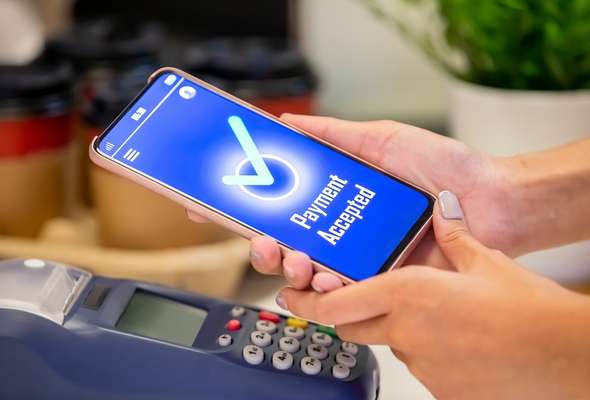
What Factors Should Organizations Consider Before Outsourcing Their Internal Audit Functions?
+91 1141182211 Outsourcing has become a strategic choice for many organizations looking to streamline operations, reduce costs, and enhance efficiency.

Online transitions have become familiar, and the eCommerce industry has obtained an excellent boost due to the familiarity with online payments. A seller can now create a website to sell his goods and get paid through an online payment processing system. However, every online business should integrate a safe online processing system. Making sure payments are safe improves the customer experience and can help your business grow in the long run. While choosing the right payment processing software, online businesses may ask the following questions.
The payment processing tools are registered in different countries. Most software developers register their tools in multiple countries, though some tools are dedicated to serving a particular country. So, you need to check the compatibility of the payment processing software with your trading currencies.
Customers from a particular country will not be able to pay for the products or services through your web store if the payment gateway does not support that country’s currency. Therefore, judging by the geo-location of your target audiences, you should choose a payment gateway system for your eCommerce platform.
Many businesses integrate multiple payment gateways to serve customers from different countries. Multiple payment gateways are also a good thing for the buyers’ currencies to receive money. Irrespective of the number of payment gateways you integrate with your online business, you must check the currency compatibility of those payment processing systems.
While accepting online payment, a business is responsible for maintaining top-notch security for the buyer’s financial data. Therefore, you should choose the SaaS payment processing systems that come with PCI compliance. If you have not heard the term, PCI DSS stands for Payment Card Industry Data Security Standards.
In 2020, a report claimed that only 28% of online businesses in the USA had PCI compliance. The shocking revelation is that the number has been dropping in the last few years. If you choose payment processing systems that aren’t PCI compliant, you might break security rules. As a result, the financial data of customers will not remain safe.
The best way to see if a payment processing system is PCI-compliant is to look at how it encrypts data. Tokenization is a standard way to encrypt data that takes out credit card information to add an extra layer of security. Such payment gateways are PCI-compliant payment processing gateways.
Every payment solution is unique, and the onboarding experience varies from one provider to another. A more rapid and seamless onboarding process is critical for a positive customer experience. While choosing a payment gateway, eCommerce businesses should keep the following things in mind.
A reliable and professional SaaS payment processing service in India should offer a payment gateway that works with more than one payment method. In India, debit and credit card payments are popular, though UPI payments have also become convenient for buyers.
Besides these conventional payment options, the payment gateway should support digital wallet payment, internet banking, pay-later features, and many more. Featuring multiple payment gateways, it attracts more buyers to an online store.

Still, the payment processing system is a key part of keeping customers returning to an online business.
Nowadays, merchants can find multiple payment processing systems to integrate into their online stores. But the price of a tool for processing payments depends on its features, security, and other factors. Since the market has become competitive, most SaaS payment processing companies offer low-budget deals to their customers.
However, it is still crucial for merchants to check the cost and features before choosing a payment gateway. You can check out multiple software packages and judge which one is the most cost-effective one for your business. Typically, the payment processing gateways come with a monthly package cost. In a few cases, they have fees for particular payment methods.
Every business is different, so owners need customized software as a service (SaaS) to keep track of all their tasks. So, it would help to look for a customizable payment processing tool for your online store
Customizable tools help businesses add or delete payment processing gateways according to their requirements. For example, some businesses want to offer a “pay later” option to buyers to lure more buyers. This payment option increases the conversion rate because it makes it easier for buyers to buy and pay for a product later
Some businesses receive a good number of buyers from a specific country. In such cases, the sellers want to offer currency compatibility to such buyers.
While choosing payment processing software, eCommerce businesses seek long-term cooperation with the service provider. However, it does not happen that way in a few cases, and online businesses are looking for a better option.
You can easily find better options due to the availability of multiple payment processing gateways. However, migration from one service to another can be a daunting task. Businesses do not want to lose customers due to technical hiccups during the migration.
Before choosing a payment processing system, you should look at the terms and conditions for migration. It will help you to migrate easily if such a requirement arises.

Profound and dedicated customer support is essential for choosing the right SaaS payment solution. If a company doesn’t have good technical support, it could be challenging for eCommerce merchants to work with them in the future.
Nobody likes losing customers due to technical glitches on the payment gateway. Moreover, frequent glitches on the payment gateway are unsuitable for your business reputation. Effortless customer support is essential to deal with such technical glitches.
SaaS fraud management for SaaS payment processing is essential to protect customers from financial fraud. People lose money due to fraud, and gaining back the trust of such people becomes difficult. It is difficult to bring back a buyer once you have lost him. Therefore, you must have a payment gateway system with an efficient fraud management mechanism.
The payment processing software should be tax-compliant to reduce your hassles in dealing with taxes. The payment gateway should add GST for domestic and international transactions. At the same time, it must include additional transactional fees for international payments. Choosing such a payment processing tool reduces hassles for small-scale eCommerce stores.
So, these are the questions you should ask before choosing the SaaS payment processing provider in India. Finding reliable payment processing software can improve the conversion rate of your business. At the same time, it enhances the momentum of customer retention by making things easier for them.
Like this article?
More To Explore

What Factors Should Organizations Consider Before Outsourcing Their Internal Audit Functions?
+91 1141182211 Outsourcing has become a strategic choice for many organizations looking to streamline operations, reduce costs, and enhance efficiency.

Outsourcing Internal Audit: Evaluating the Upsides and Downsides for Your Organization
+91 1141182211 In today’s dynamic business environment, companies face increasing pressure to enhance efficiency, manage risks effectively, and ensure compliance

A Background Verification Guide: Frequently Asked Questions and Their Answers
+91 1141182211 Background verification (BGV) is a crucial process used by employers to ensure they are hiring candidates with accurate